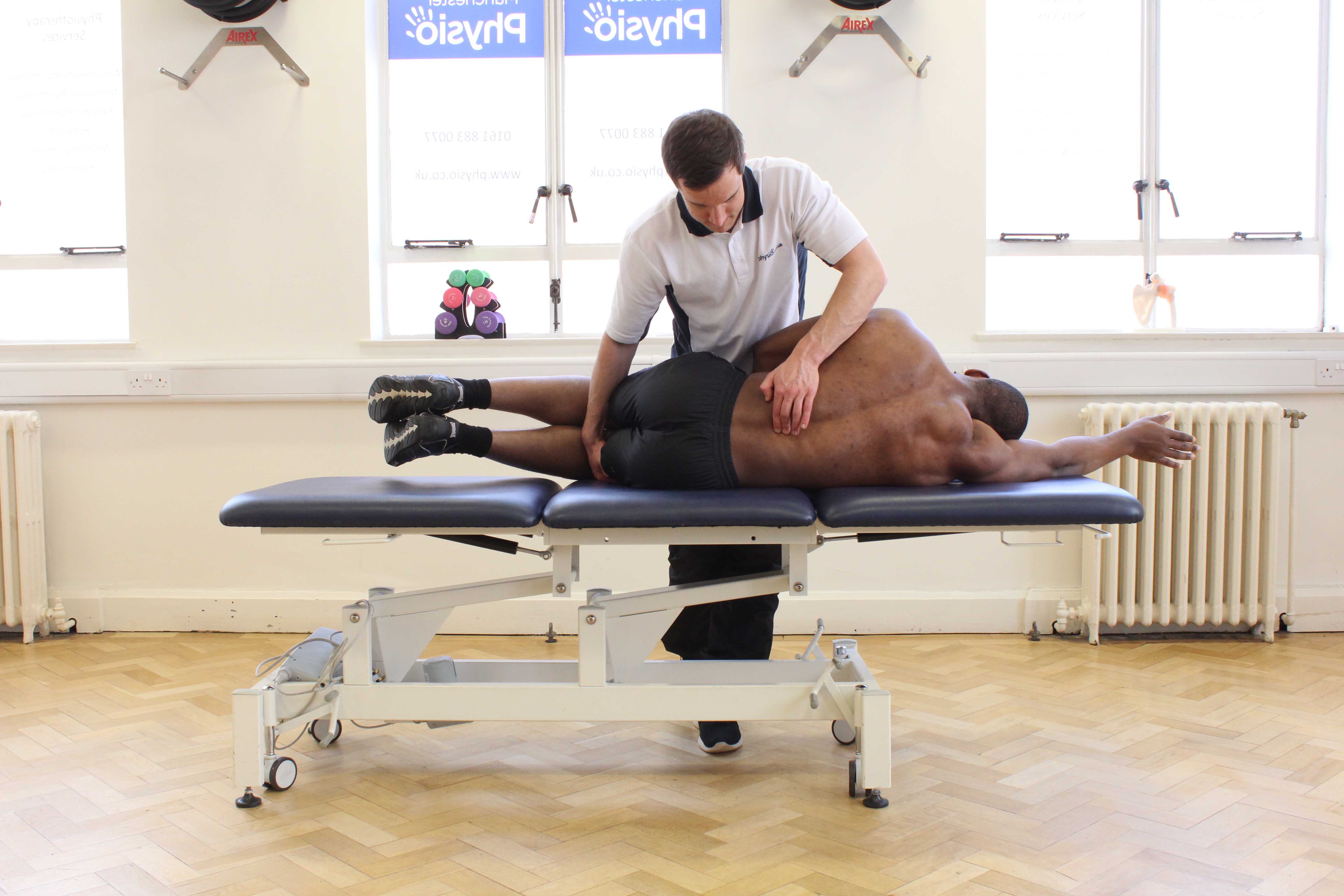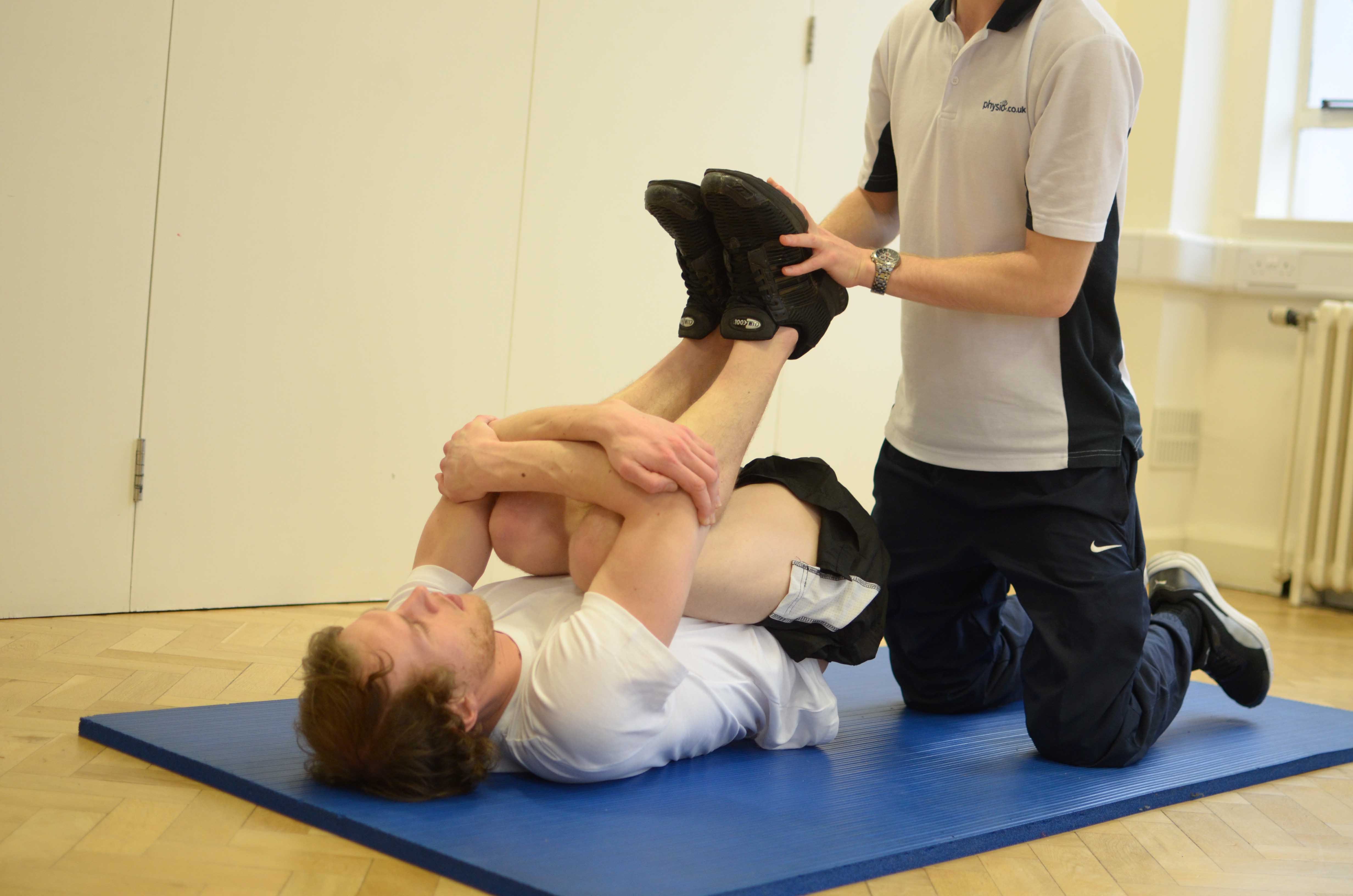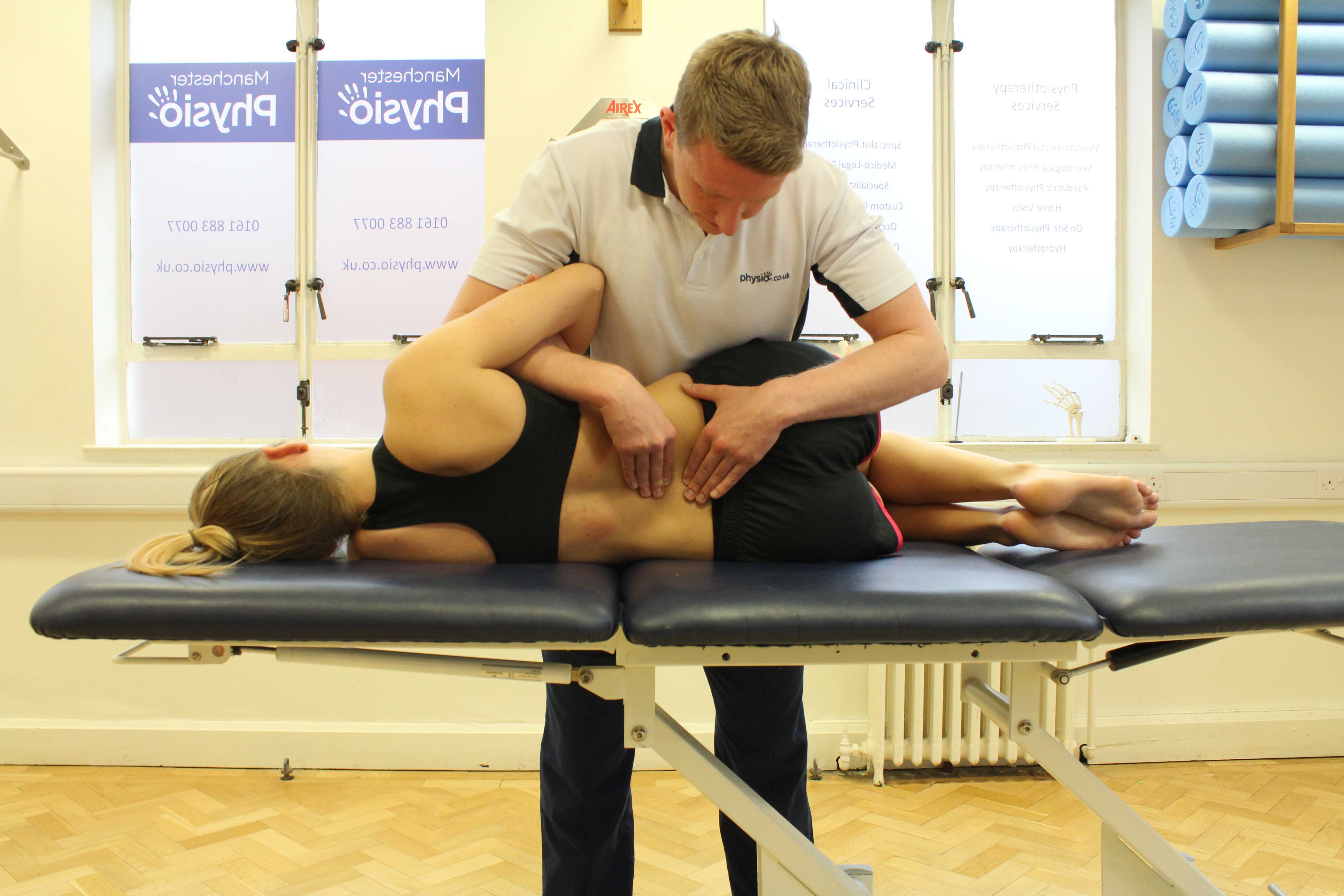Lumbar decompression
Lumbar decompression surgery is the removal of material (bone or disc material) from the lumbar spine that is taking up space causing pressure on the nerve root. Lumbar decompression is conducted to increase the space for nerves and to alleviate pain in the lower back, buttocks and legs and promote return to normal activities. The two common types of lumbar decompression aremicrodiscectomyandlaminectomyto relieve pain in the lower back and legs.
A lumbar decompression may be recommended if an individual has experienced pain in their lower back, buttocks or legs for a long period of time, accompanied with numbness and weakness and difficulty walking.The operation is done under general anaesthetic and involves a short hospital stay.
 Above: Therapist performing lower back vertebral decompression.
Above: Therapist performing lower back vertebral decompression.Physiotherapy before a lumbar decompression
Pre-op physiotherapy will help to stabilise your spine and prepare the muscles and the lumbar spine for rehabilitation post-operatively. Gentle exercises will be tailored to your current level of pain and disability. Information and advice may be provided by your physiotherapist to prepare you after your surgery.
Symptoms after a lumbar decompression
It is normal to experience some pain and discomfort during the healing process after your surgery. You may feel tenderness and discomfort around the incision area as it heals, however you will be given pain medication to relieve this. Some individuals find ice packs offer pain relief. A physiotherapist will get you up walking approximately 24 hours after the operation although this will depend on how you feel at that time. Early ambulation is encouraged to promote healing and recovery. You will usually be discharged between 3 and 6 days or until the physiotherapist is confident in your ability to walk and transfer independently
 Above: Therapist assisted lower back decompression
Above: Therapist assisted lower back decompressionPhysiotherapy following a lumbar decompression
Physiotherapy treatment should be restarted as soon as possible after your surgery for the best possible recovery. Physiotherapy at Physio.co.uk will initially identify and correct any faulty movement patterns, muscle imbalance and joint stiffness as a result of your surgery. Physiotherapy treatment will improve you mobility, muscle strength, flexibility and physical fitness after your surgery and facilitate your return to full function.
 Above: Mobilisation of the vertebrea in the lower back
Above: Mobilisation of the vertebrea in the lower back1-2 weeks
Physiotherapy treatment at Physio.co.uk commenced shortly after your surgery will promote your recovery and return to work. Physiotherapy treatment at this stage will include:
- Teaching you how to mobilise safely and independently
- Improving posture and confidence with movement
- Relieving pain and inflammation using electrotherapy combined with hands on techniques.
- Range of movement exercises to reduce the formation of scar tissue and promote healing.
- Pain management
 Above: Pain associated with the muscles and connective tissues of the lower back
Above: Pain associated with the muscles and connective tissues of the lower back2-6 weeks
At this stage of your treatment, a gradual increase in exercises will be introduced including activities to be continued on a regular basis at home. A structured exercise program will be developed suited to your lifestyle. Walking is an ideal activity and will be incorporated into your exercise programme. Physiotherapy at this stage may include:
- Activities to re-educate normal movement patterns
- Stretching shortened structures and mobilising muscles and joints in order to restore full and correct range of movement.
- Isometric strengthening abdominal exercises
- Exercises to strengthen the quads, hamstrings and glutes
- Walking
- Stationary cycling
- Hydrotherapy
- Advice about how to self manage activities of daily living
6-12 weeks
Your exercise program at this point will progress so that you continue to strengthen the muscles around your lower back, hips and legs. As you continue to improve, your physiotherapist will tailor the exercises to your lifestyle, in order to promote your return to work and sporting activity. Your physiotherapist may also suggest ways to correct posture in lying, sitting and standing to make sure you are comfortable at home or at work. Physiotherapy treatment at this stage may include:
- Strengthening muscles (i.e. deep abdominals, and the gluteal/buttock muscles) to stabilise the spine
- Stretching
- Progressing walking distance
- Exercises based around your work or sporting life
- Correcting and varying posture
12+ weeks
Your physiotherapist at this stage of your recovery will continue to improve your muscle strength, flexibility, endurance, posture and functional ability. Tailoring the treatment to you will ensure that you make progress and reach your maximum physical potential so that you can carry out the activities important to you. Dedication to the treatment programme and the home exercises is important. Our motivated team of physiotherapists at Physio.co.uk will guide and support you throughout your rehabilitation so decrease your postoperative recovery and improve your quality of life.
For more information call Physio.co.uk now on 0330 088 7800 or to book an appointment please contact us.

 0330 088 7800
0330 088 7800

































